Jeremy Kyle Show was one example of the class divide endemic in Britain – OPINION
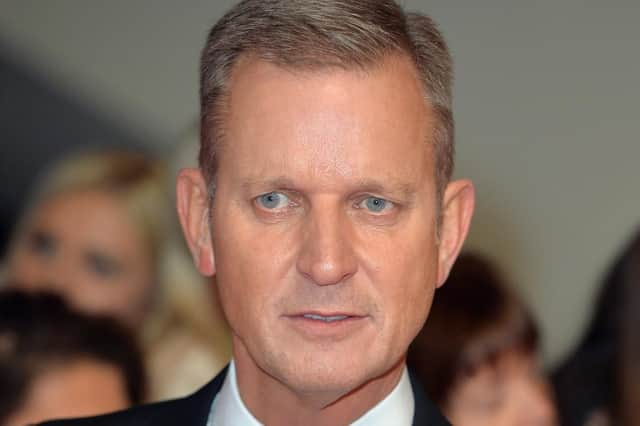

And once the Jeremy Kyle Show was taken off air, correctly never to reappear, the cracks were exposed as a San Andreas faultline permeating all English life, from the former north-east towns forever scarred by the mid-80s miners’ strike to the Cornish families who have no chance of getting on the local housing ladder thanks to the wealthy second home owners from the Home Counties.
As always, in the aftermath of Kylegate, social media gave people the chance – quickly and enthusiastically taken by many – to perfectly illustrate their utter contempt for a large section of society.
Advertisement
Hide AdAdvertisement
Hide AdThe show itself is – was – ‘skanky’, ‘gutter trash’, ‘televised bullying’ and ‘gutter TV’.
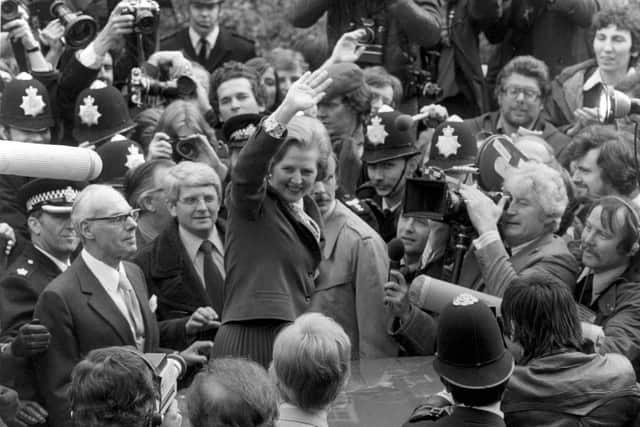

Those that appeared as guests were condemned as ‘low life smack heads’, ‘the dregs of society’, ‘retards’, ‘scumbags, benefit cheats and soap dodgers’ and ‘sub-human detritus’.
Those that watched it were little better, described as ‘chavs’, ‘dolescum’, ‘halfwits’, and – a popular one, this – ‘low life smack heads.’
Charming. John Major’s early 1990s’ vision of a ‘classless society’ has never seemed such a sick joke.
Advertisement
Hide AdAdvertisement
Hide AdWelcome to ‘Great’ Britain, May 2019 – exactly 40 years on from the advent of Thatcherism, the very ideology, the doctrine, that led to all this.
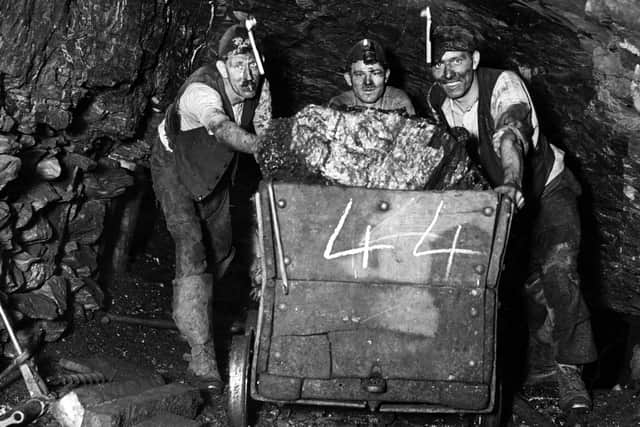

This is the state of our nation, and I didn’t have to look very far for the comments mentioned above. I just looked on The News’ Facebook page. I guess it underlines you don’t have to be a racist or a xenophobe to dehumanise fellow Brits.
Once upon a time, working class people provided the blood, sweat, tears and skills which made England proud. They toiled in the mines of the north-east, Yorkshire and the midlands, the cotton mills of Lancashire, and on car assembly production lines in the west midlands. Once, the working class had a pride in their class – before it was savagely beaten out of them on the picket lines at Orgreave and Wapping in the 1980s. Now the people once considered ‘salt of the earth’ are reviled by some as ‘scum’.
As mentioned, this can be traced back four decades. In 1979, this country was one of the most equal in the western world. About 42 per cent of the population lived in council housing. Today, the figure is eight per cent.
Advertisement
Hide AdAdvertisement
Hide AdOne of Margaret Thatcher’s key policies that helped her win 40 years ago was a promise to sell off council housing, which only served to send prices soaring and led to generations unable to get a foot on the property ladder. In addition, there is now a dearth of affordable properties for the under-30s.
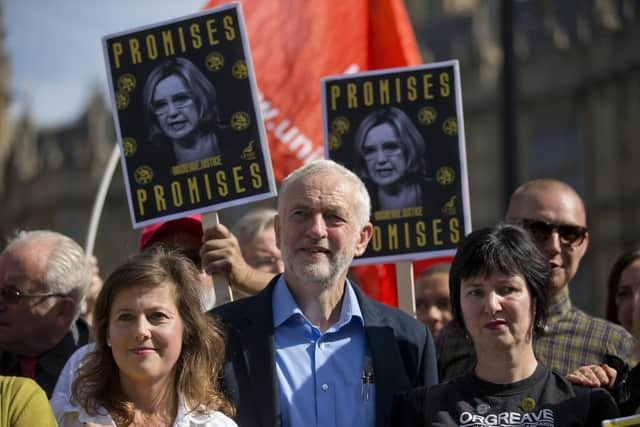

Her crushing of the trade unions – class war, basically – contributed to the stagnation of wages in the current millennium, leading many to top up their incomes with credit and in turn contributing to inevitable levels of record debt. It is not hard to see how the cracks in society started to emerge, and how they have widened.
The Jeremy Kyle Show was just one example of the class divide which is endemic in this country. Put simply, the national media – newspapers and television companies – are owned by middle and upper class people who employ middle and upper class people to work for them. And they do not, cannot, understand the guests who were routinely and depressingly rolled out to be shouted at by Jeremy Kyle and laughed at by a baying, jeering audience which made you anything but proud to be British..
Here is one example. In 2007, Madeleine McCann went missing. Within a fortnight, an extraordinary £2.6m had been offered as a reward for her safe return. In the same timeframe, the UK media wrote more than 1,100 articles on her disappearance.
Advertisement
Hide AdAdvertisement
Hide AdNow compare that to the case of Shannon Matthews, another young girl who went missing a few months later. Within a fortnight, the media had written only a third of the stories they had about Madeleine, and the reward for finding her safe and well was, in comparison, a paltry £25,500. Based on money, the life of a girl born to middle class, churchgoing parents was considered 50 times more valuable than one born to a woman with seven kids with five different fathers on a rundown estate in the north.
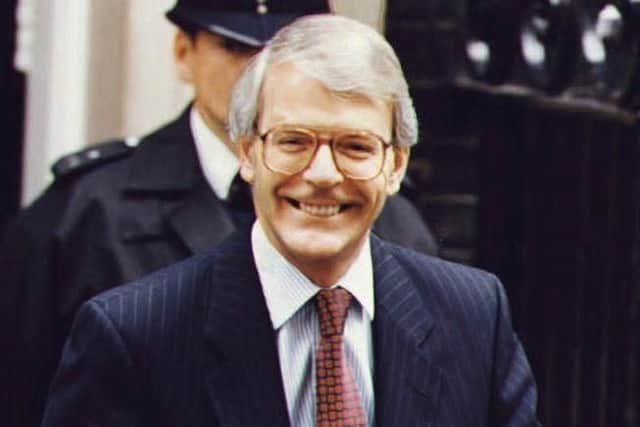

There was a very good reason for this – the national newspaper reporters and television anchors had stumbled into unfamiliar territory when visiting Dewsbury Moor in Wakefield, Yorkshire, to cover Shannon’s disappearance. The newspaper and television reporters were overwhelmingly middle class, possibly with a CV including a university education. They would no more understand Dewsbury Moor and its social problems than they would if they had been parachuted into Syria. They could far more easily sympathise with the McCanns, for they were no doubt similar to their own parents and their friends’ parents.
So I wonder; I wonder how many people have indulged in a spot of hypocrisy this week over the decision to take the Jeremy Kyle Show off our screens after more than 3,300 episodes stretching back to 2005.
I’ll be honest – I’m guilty. And you might be too. For it’s not just Jeremy Kyle, is it? Look at this country’s biggest-selling daily newspaper, The Sun. You won’t find many people saying too many good words about it, but one-and-a-half million still buy it and many more no doubt read its stories online.
Advertisement
Hide AdAdvertisement
Hide AdYet this is the paper which should be hated by all sensible adults, if for no other reason than its incendiary (and inaccurate) ‘The Truth’ headline regarding Liverpool fans’ behaviour at Hillsborough. Yet millions still buy it. Surely it’s hypocrisy to demand the Jeremy Kyle Show is consigned to the dustbin, yet to carry on buying a newspaper which once described the working class Jade Goody as ‘a pig’ and ‘an oinker’. During Jade’s Big Brother appearance, members of the public actually took the effort to go to the studios and stand outside with hand-made banners declaring ‘Burn the Pig’. Welcome to ‘Great’ Britain, where our national press uses the word ‘pig’ to describe someone who might have been one of their readers.
Here’s why I’m guilty: though I don’t recall watching an episode of Jeremy Kyle from start to finish, I have regularly tuned into other ‘poverty porn’ television shows such as Benefits Street and Benefits by the Sea: Jaywick. I made an effort to watch the latter, which basically shone a light into the dismal lives of those living in the Essex seaside town. God, it looked grim – it was grim – but I watched every episode. Why? Did I sit there on my comfy sofa thinking ‘bring it on, give me some poverty so I can appreciate my relatively comfortable middle class life a bit more?’ Possibly, but I’m sure I’m not alone. I wasn’t the only person to watch those programmes.
Here are some more examples: Matt Lucas’s comedy character creation Vicky Pollard and, back in the 1990s, Kathy Burke’s equally hideous Waynetta Slob. Vicky once offered to swap her baby for a Westlife CD, while Waynetta once told her husband Wayne (Harry Enfield) ‘I want a brown baby, like all my friends have.’ Oh, how we laughed. And as we laughed, we were indirectly chortling at the lower classes – for those were the ones whose lives were being parodied on prime-time television. Imagine the outcry if such characters were black. It’s not okay to be racist any more – or sexist, or homophobic – but it’s still okay to laugh at the lower classes and to denounce them as ‘smack heads’, ‘retards’ and ‘scumbags’. Call disabled people by those names and you’re rightly condemned as an ‘online troll’ and subject to possible police charges. Call the lower classes by those names and others on social media seem gleeful to join in with their own colourful contributions.
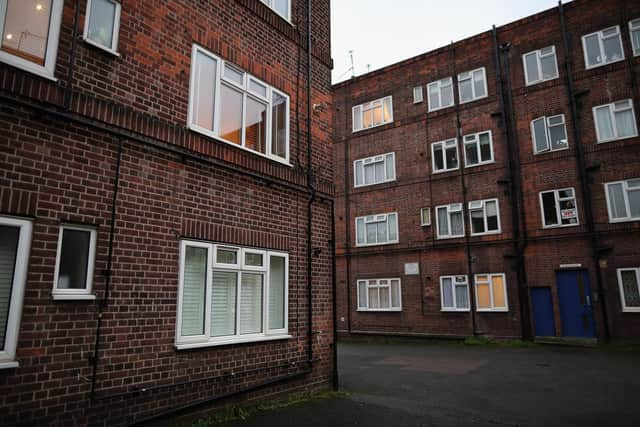

‘If TV programmes stereotyped people with disabilities or people of colour the way they do working-class people, it wouldn’t be allowed.’ So said Jeremy Corbyn in 2017. I’m not a big fan of the Labour leader, but in this instance he was spot on.
Advertisement
Hide AdAdvertisement
Hide AdGood luck in trying to change the status quo, however. The Jeremy Kyle Show might have been axed, but the equally moronic Love Island – two of whose one-time contestants have committed suicide in recent months – is returning to our screens soon. So consider these words, written by Owen Jones in his 2011 book Chavs – The Demonization of the Working Class: ‘What does the case of Jade Goody show us, other than the capacity of the British media for crassness and cruelty? Above all, it demonstrated that it is possible to say practically anything about people from Jade’s background. They are fair game.’
Eight years on, they still are. Our national media have a fear and loathing about the lower classes, and we can only hope the axing of the Jeremy Kyle Show is a watershed moment, a harbinger of a more humane society, in the same way that The News of the World newspaper was forced to close in 2011 because murdered Millie Dowler’s phone was hacked by the paper.
It probably won’t be, though; because there is still a market for the lower classes to be served up as entertainment fodder, a market for the worst of our voyeuristic behaviour when watching vulnerable people attempting to deal with complex personal issues in front of a shrieking presenter and a howling audience.
And that doesn’t just shame the people involved in the making of the Jeremy Kyle Show.
No, it should shame the society that allowed it to run for 3,300 episodes before a tragic death changed everything.
My society. Your society.?????????????????????????????????????????? Our society.